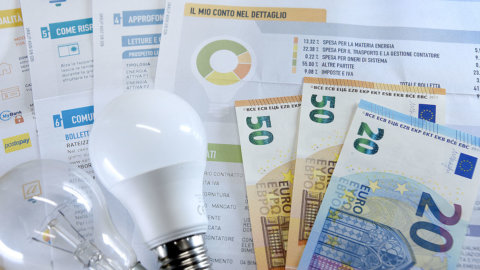The insurance scam market in Italy is worth every year not less than 3 million euros and affects thousands of vehicles. In fact, the most affected are motor liability insurance, especially if of temporary duration. The phenomenon is spreading exponentially throughout the country: in the month of February 2019 alone, the reports of offenses concerned four websites of fake intermediaries, Assicuratriceunione.it, carinsurance2000.it, directlinerca.com and Assicurazionifast.com, which fraudulently used the identity of intermediaries duly registered in the Single Register of Intermediaries (RUI) held byInstitute for Insurance Supervision (IVASS), results completely unrelated to illegal activities.
The case starts from afar: in 2015 the reports of defrauded consumers were sporadic, in 2017 the phenomenon exploded and customer complaints concerned 50 sites, today 99% offline; 2018 sites were discovered in 105, of which 75% were offline last December.
Websites, profiles or pages within blogs and social networks, paid advertisements, promotional campaigns via email in favor of non-existent intermediaries, these are the most common ways in which full-blown insurance fraud is carried out to the detriment of consumers. But the pitfalls do not end here: the fraud is accompanied by the crime of abusive practice of insurance brokerage and, often, identity theft to the detriment of unsuspecting intermediaries officially registered in the RUI.
The negative consequences of this phenomenon they don't just reverberate on consumers, but also on intermediaries and companies that operate regularly and suffer damage to their image and reputation. A further consequence is the loss of consumer confidence in insurance distribution via the internet and distrust of forms of electronic payment and online transactions.
Beyond the damage the mockery. Those who fall into the trap of insurance scams not only lose their money and have little chance of recovering it, but may face fines, seizure of the vehicle and revocation of the license, due to the absence of valid insurance coverage.
HOW IVASS OPERATES
The Institute for Insurance Supervision moves independently in the search for sites of false intermediaries, through web searches using tags, keywords and other useful elements.
Of fundamental importance is the reporting to IVASS by citizens and consumer associations, which through the toll free number 800486661 present on the site or by email inform the Institute that they have suffered a scam or an attempted scam. Reports made by regular intermediaries or companies are also very useful.
The Institute verifies whether the website subject to the reports can be traced back to an intermediary who operates regularly and is registered in the RUI. when theInsurance Supervisory Institute discovers that the reported intermediary is illegal, publishes a press release on its website to warn consumers and sends the Judicial Authority a crime report asking for the site to be shut down. The speed with which reports are sent to the Institute is an integral part of the process of identifying those responsible for the scam.
IVASS collects information relating to "pirate" sites within a database that is consulted and constantly updated whenever a new irregularity report comes to your attention.

What is within the consumers' power to avert the scam, is consult the lists of Italian and foreign companies admitted to operate in the national territory, the list of alerts related to counterfeiting cases, unauthorized companies and non-compliant websites to the regulation on intermediation and the single register of insurance intermediaries and list of intermediaries of the European Union.

In terms of payments, it is good to make sure that the beneficiary of the premium payment is an intermediary registered in the RUI, which can be consulted by connecting to the IVASS website. If you are asked to pay to prepaid/rechargeable credit cards and/or bank accounts, it must be ensured that the card or account holder is an intermediary registered in the RUI.
WHEN TO BE SUSPECTED
When on the site that promotes apparently advantageous insurance offers the intermediary's data and references are missing – name, RUI registration number, registered office – or there are inconsistencies with the data published in the Single Register, then the consumer must become suspicious and request further information by contacting the IVASS toll-free number, because he could be faced with a case of fraud .
It is good to be wary even if contacts with the intermediary can take place only through email, mobile number and Whatsapp, or when the recipient of the payment is not registered in the RUI.
HOW TO RECOGNIZE THE CORRECT OPERATOR
Websites or Facebook profiles (or other social networks) of the intermediaries who carry out online activities must always indicate: the identification data of the intermediary; the address of the registered office, the telephone number, the fax number and the e-mail address; the number and date of registration in the Single Register of insurance intermediaries as well as the indication that the intermediary is subject to the control of IVASS.
All sites or Facebook profiles (or any other social network) that do not contain the above information are not compliant with the regulations on insurance brokerage and expose the consumer to the risk of taking out a counterfeit policy and to travel unknowingly without valid insurance coverage.
For intermediaries in the European Economic Area (EEA) authorized to operate in Italy, the Internet site must contain, in addition to the identification data and contact details indicated above, the indication of any secondary office and the declaration of authorization to carry out the activity in Italy with the indication of the Authority of home Member State supervision.





